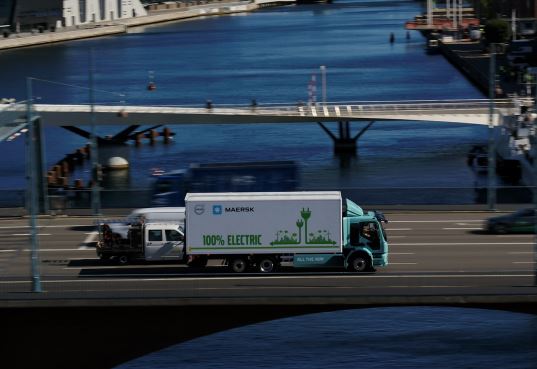New report calls on subnational governments to promote zero emission truck transition
Climate Group also underlines the importance of engaging and working closely with utility companies to accelerate the deployment of charging infrastructure, map future energy demand and to streamline the planning and permitting process – which is often subject to delay
A new report launched today by global non-profit Climate Group and the Under2 Coalition’s ZEV Community has outlined what subnational governments need to do to boost the transition to zero emission trucks.
Trucks are a significant contributor to air pollution, representing just 4% of all vehicles on the road globally but accounting for 40% of all road transport emissions and a third of total transport fuel use.
Tackling dangerous emissions from trucks is vital if governments are to maintain their commitments and keep the goals of the Paris Agreement alive.
The new report urges governments to set clear phase out dates for petrol and diesel engines – 2030 for polluting buses and 2040 for trucks. These should be supported by other legally binding policies like the ambitious CO2 Standards for Trucks Regulation in the EU and Advanced Clean Trucks legislation in California.
It also encourages governments to engage and work with businesses, like pioneering companies involved in Climate Group’s EV100+ zero emission trucking initiative.
Working with businesses can help unlock private finance and investment in the transition, as well as sending a clear demand signal to manufacturers that there’s a market for zero emission trucks.
To power the transition, Climate Group also underlines the importance of engaging and working closely with utility companies to accelerate the deployment of charging infrastructure, map future energy demand and to streamline the planning and permitting process – which is often subject to delay.
Dominic Phinn, Head of Transport, Climate Group says:
“Latest figures show that trucks are responsible for 5% of total global CO2 emissions, and this is predicted to increase to over 11% by 2050 if these huge emitters aren’t decarbonised – trucks already emit more CO2 than the aviation and shipping sectors combined. But fast action is possible. Subnational governments should work hand in glove with businesses to fast-track the transition, clean up our air and decarbonise our roads.”
Category: Cab, Trailer & Body New, Driver Stuff, Electric Vehicles, Engines & Drivetrains, Equipment, Featured, Fleet Diagnostics & Software, Fleet Maintenance, Fuel & Oil, General Update, Green, News, Products, Safety, Tech Talk, Training, Transit News, Vehicles











